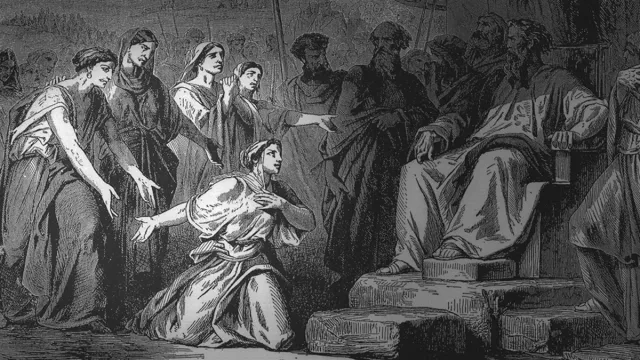
Profound Impact of Prayer and Fasting

Discovering the Profound Impact of Prayer and Fasting: Beyond Crisis Moments
Throughout biblical history, numerous women have left an indelible mark through their strength, wisdom, and courage. Their stories, often intertwined with significant events and figures, serve as testaments to their remarkable influence despite the societal norms of their times. From Esther’s bravery in saving her people to Deborah’s leadership as a judge and prophetess, and Ruth’s loyalty and resilience, these women defied conventions, shaping the course of history and leaving a lasting legacy of faith, determination, and empowerment for generations to come. In this article we are going to look at how Zelophehad’s daughters and Esther reshaped history for mankind.
The stories of Zelophehad’s daughters and Esther unveil a crucial truth—prayer and fasting aren’t just tools for desperate times. Esther’s resolute prayers and fasting were pivotal in her people’s deliverance, causing the king’s (King Xerxes) favor to shift and leading to the downfall of her enemy, Haman. Her prayers revoked decrees, bringing victory, comfort, and promotion to her community.
This narrative echoes a deeper call: it’s an insult to God for His children to solely seek these practices in dire circumstances. The earth and its fullness belong to God, yet many Christians underestimate themselves, unaware of their inherent rights. Esther’s initial disbelief mirrors that of countless believers.
Learning to pray and fast consistently empowers us, ensuring we don’t remain at the mercy of the adversary. It’s about understanding our authority, not just during crises but as a perpetual source of spiritual strength and guidance.
Notes for further reading:
Esther was a Jewish queen in ancient Persia, known for her bravery and intelligence. She became the wife of King Xerxes I (also known as King Ahasuerus), although she initially kept her Jewish identity hidden. Esther’s story is recounted in the biblical Book of Esther.
King Xerxes I was a ruler of the Persian Empire, which encompassed a vast territory in the ancient world. He reigned from approximately 486 to 465 BCE and is mentioned in historical records outside of the Bible.
Haman was a high-ranking official in King Xerxes I’s court, known for his pride and hostility towards the Jewish population. He plotted to exterminate the Jewish people, setting in motion a plan to annihilate them. Haman’s scheme was thwarted due to the courageous actions of Esther, who intervened to save her people by revealing Haman’s wicked intentions to the king.
Zelophehad’s daughters are individuals mentioned in the Hebrew Bible, specifically in the book of Numbers in the Old Testament. Zelophehad was a descendant of the tribe of Manasseh, and he had five daughters: Mahlah, Noah, Hoglah, Milcah, and Tirzah.
Their story is significant because during the time when inheritance laws were being established, Zelophehad had no sons to inherit his land. His daughters approached Moses and argued for their right to inherit their father’s portion of the land in the Promised Land. Their case prompted Moses to inquire of the Lord, who affirmed that the daughters should indeed inherit their father’s portion. This decision set a precedent for women’s inheritance rights in Israelite society.
